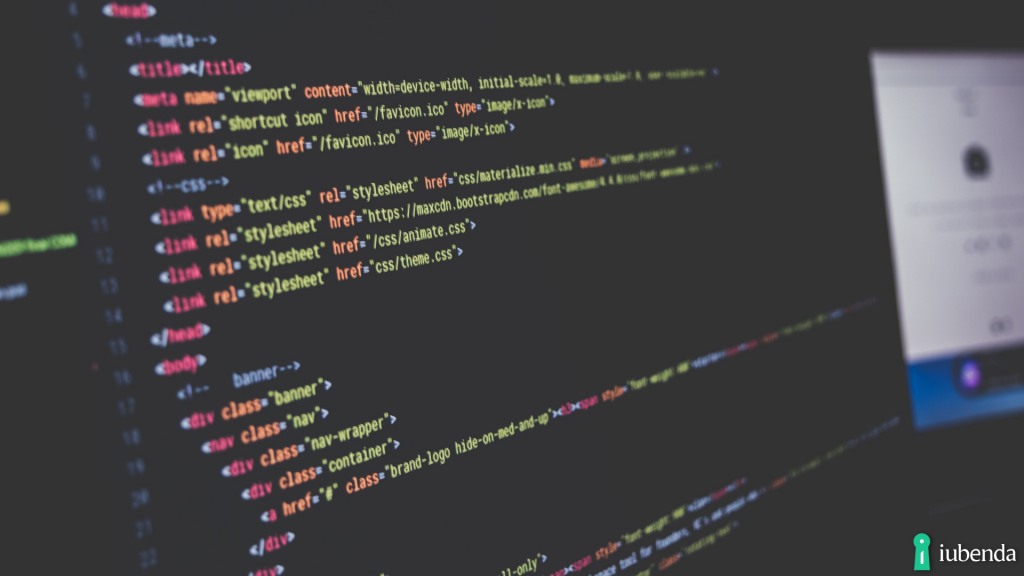What is the meaning of sensitive data exposure? What can be its causes? How do you prevent sensitive information from leaking?
This post explains what sensitive data exposure is and how you can prevent it.

Sensitive data exposure: what does it mean?
Sensitive data exposure refers to the accidental exposure of sensitive data. It usually happens because a company lacks proper security measures or when employees don’t receive specific security training.
Data exposure is a serious business because it could inadvertently leak sensitive information, such as banking accounts, credit card numbers, healthcare data, passwords, etc.
Privacy laws always stress the importance of data protection measures.
For example, one of the fundamental principles of GDPR is accountability, which consists of privacy by design and privacy by default. According to privacy by design, a company that wants to collect and process users’ personal data should always have appropriate technical (encryption, pseudonymization, or anonymization) and organizational measures in place before starting the collection.
Not only that.
If sensitive data exposure were to happen, it could also affect your company’s reputation: users are less keen on trusting a business that doesn’t take data protection seriously.
Is there a difference between sensitive data exposure and a data breach?
According to Norton™, there is.
The main difference should lie in their intentionality: a data breach is intentional since it results from a cyberattack carried out by hackers. On the other hand, sensitive data exposure isn’t intentional because the data is left for anyone to see without protection.
However, Data Protection Authorities usually tend to treat both data breaches and sensitive data exposures in the same way. For example, here’s a definition of data breach taken from the UK’s Information Commissioner Office’s website:
A personal data breach means a breach of security leading to the accidental or unlawful destruction, loss, alteration, unauthorized disclosure of, or access to, personal data. This includes breaches that are the result of both accidental and deliberate causes. It also means that a breach is more than just about losing personal data.
Be it deliberate or unintentional, sensitive data has still been exposed, and thus the problem needs to be addressed.
What can be the causes of sensitive data exposure?
As we said earlier, the main cause of sensitive data exposure is often carelessness.
Some companies overlook data protection and don’t take any measure to ensure that their users’ data is protected.
Among the most common causes are weak encryption (or no encryption at all), software flaws when someone uploads data to the wrong database or sends the data to the wrong person.
How to prevent sensitive data exposure
As for data breaches, sensitive data exposure can be prevented. Moreover, we could argue that they can be prevented way more easily than data breaches since the responsibility lies to the company itself.
Anyway, the steps to take to avoid sensitive data to leak are more or less the same as those taken to prevent a data breach:
- Invest in your business’s cybersecurity system and train your staff appropriately.
Everyone in your company should know cybersecurity basics, such as using strong passwords and enabling multi-factor authentication. This is extremely important for sensitive data exposures because they mainly happen for lack of care. - Encrypt your data.
Encrypted data is complicated to decipher without the proper key. If sensitive data were to be exposed, it would be difficult to understand what the data are about. Make sure you’re keeping your encrypted data and their encryption keys stored in different places. - Add extra layers of security to your files when using external storage platforms.
As experts often say, online storage platforms are just someone else’s computer, and, though they’re generally safe, they’re also easier to access. That’s why it’s safer to take further security steps. - Consider hiring a security expert, especially if you perform large-scale processing of sensitive data. Experts in the field can provide up-to-date information on IT security trends they learn from a trusted source, like government sites or other guru in the field.
- Assess the risk of your processing activities.
If you process personal data, it’s best to assess the risk of each processing activity before starting it. This can be achieved through a Data Protection Impact Assessment (DPIA). You can learn more here.
📬 Want the latest in Data Protection and Privacy news delivered to your inbox? Join our DPO Newsletter!